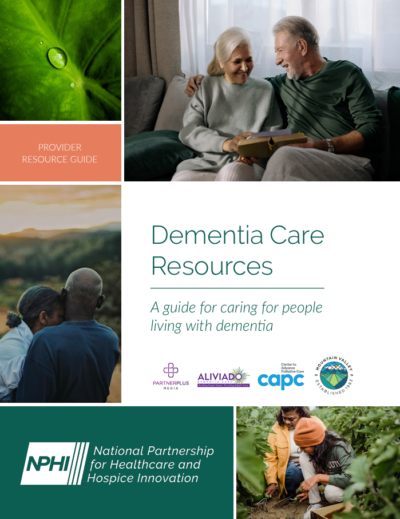Leading Memory Care Facilities Charlotte: Making Certain Convenience and Safety And Security for Seniors
Leading Memory Care Facilities Charlotte: Making Certain Convenience and Safety And Security for Seniors
Blog Article
Just How to Give Individualized and purposeful Dementia Treatment
The stipulation of meaningful and individualized mental deterioration care calls for a nuanced understanding of each individual's one-of-a-kind background and preferences. Treatment approaches must be customized to engage the person in methods that resonate with their previous experiences, consequently fostering emotional connections and enhancing general well-being.
Comprehending Dementia Individuality

Care suppliers have to analyze cognitive abilities, emotions, and behavioral patterns to produce customized care strategies. This might consist of adapting interaction styles, utilizing familiar regimens, and using purposeful activities that resonate with the person's past experiences. Engaging an individual with an interest for songs with music tasks might stimulate favorable memories and enhance psychological health.
In addition, comprehending uniqueness fosters a thoughtful method that appreciates the dignity and freedom of those coping with dementia. It motivates caregivers to listen proactively, observe behavior cues, and remain versatile in their caregiving approaches (memory care facility charlotte). By focusing on uniqueness, caretakers can not only boost the lifestyle for those with mental deterioration however likewise build a more profound understanding of their distinct viewpoints, ultimately resulting in a lot more reliable and compassionate care
Building Count On and Connection
Establishing count on and connection is essential in mental deterioration treatment, as it develops a secure and supportive environment for people affected by the condition. Building these links requires regular, compassionate communications that prioritize the requirements and feelings of the individual. Caretakers should approach interactions with compassion, recognizing the special obstacles encountered by those with mental deterioration, consisting of memory loss, confusion, and emotional distress.
Reliable interaction is vital in this process. Caretakers must use clear, easy language and non-verbal cues to convey understanding and support. Active paying attention shows regard and recognition, allowing people to share themselves without fear of judgment. Additionally, maintaining a calm attitude can help ease anxiety, fostering a feeling of safety.
Experience with daily activities and caretakers promotes a sense of security, making it possible for people to feel even more at ease. By doing so, caregivers enhance the individual's identity, advertising self-respect and respect, inevitably leading to more powerful, more purposeful partnerships in the context of dementia care.
Tailoring Tasks and Interaction
Involving people with dementia with tailored activities can significantly boost their top quality of life and promote a much deeper link between caretakers and those in their care. Personalization is important, as it acknowledges the special histories, passions, and abilities of each person. Activities ought to be developed to boost cognitive functions, advertise physical movement, and urge social communication, all while continuing to be pleasurable and satisfying.
To tailor activities efficiently, it is critical to examine the person's preferences and cognitive capabilities. Some might find pleasure in horticulture, while others may value music or art. Basic, acquainted tasks can stimulate positive memories and give a sense of achievement. In addition, integrating elements of routine can Learn More Here use comfort and security, allowing individuals to involve with tasks extra confidently.
Caregivers can enhance interaction by taking part along with the people, cultivating a helpful and interactive setting. It is also essential to stay adaptive and flexible, readjusting activities as required based on the individual's energy degrees and mood. Eventually, significant interaction via tailored tasks not just uplifts people with dementia but additionally improves the caregiver partnership, advertising shared pleasure and understanding.
Effective Communication Strategies
Reliable communication is vital in dementia care, as it promotes a sense of link and understanding in between caregivers and individuals see experiencing cognitive decrease. Utilizing effective communication methods can considerably enhance the quality of interactions and lower aggravation for both events.
Firstly, using straightforward, clear language is crucial. Short sentences and acquainted words aid individuals understand and respond better. Additionally, keeping a calm and favorable tone can produce a comforting atmosphere, which is essential for individuals who might feel distressed or confused.
Non-verbal communication plays a significant role. Caregivers need to pay focus to body language, face expressions, and gestures, as these signs can commonly share more than words - memory care charlotte. Establishing eye call and using gentle touch can also share and reinforce connections compassion
Energetic listening is another essential component. Caretakers need to listen, allowing individuals to express themselves totally, even if their speech is uncertain or fragmented. This lionizes and encourages much more open interaction.
Last but not least, validating experiences and feelings is important. Acknowledging feelings, despite their basis in truth, can supply comfort and reinforce the caregiver-individual connection, advertising a much more helpful atmosphere.
Supporting Household Involvement
Family members involvement plays a considerable duty in the overall care and assistance of people with mental deterioration. Involving relative develops a collective atmosphere that improves the high quality of treatment, promotes emotional connections, and ensures that the unique requirements of the individual are met. Member of the family commonly have vital understandings right into the person's history, preferences, and habits, which can be vital in creating personalized treatment strategies.

Moreover, family members can be urged to take part in daily care tasks, such as involving in significant discussions or helping with familiar regimens. This not only helps suffer the person's sense of identification yet likewise reinforces domestic bonds. Eventually, by fostering a comprehensive strategy that values family contributions, see treatment providers can improve the general experience for both people with dementia and their enjoyed ones.
Final Thought
To conclude, delivering purposeful and tailored dementia treatment demands an extensive understanding of each person's distinct background and choices. Establishing trust fund and connection through thoughtful interactions is necessary for creating a risk-free environment. Tailoring tasks to reverberate with individual rate of interests enhances emotional health and advertises self-respect. Effective interaction techniques better support this process, while proactively involving family participants enhances the caregiving experience and cultivates much deeper connections. Jointly, these methods add to improved lifestyle for people with dementia.
The provision of significant and tailored mental deterioration treatment calls for a nuanced understanding of each person's special history and preferences. By doing so, caretakers strengthen the individual's identification, promoting dignity and regard, eventually leading to stronger, more meaningful partnerships in the context of mental deterioration care.
Engaging people with dementia through customized activities can considerably boost their top quality of life and promote a much deeper connection between caregivers and those in their treatment.Family participation plays a considerable duty in the general treatment and support of individuals with mental deterioration. Ultimately, by promoting a comprehensive technique that values family payments, treatment service providers can boost the total experience for both people with dementia and their loved ones.
Report this page